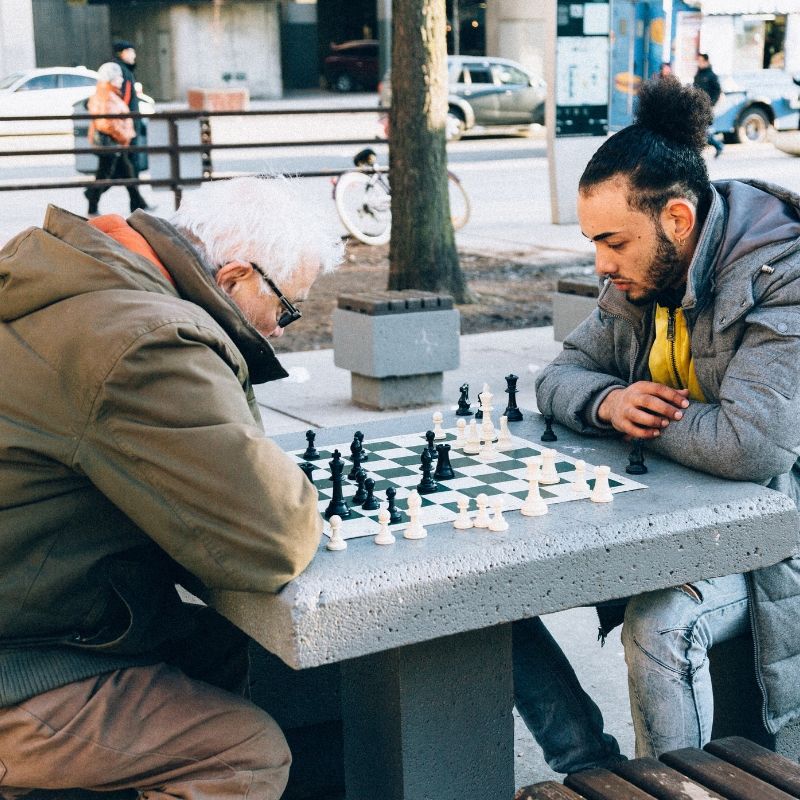As the holidays are fast approaching, for many of us, our thoughts begin to turn to how we can give back to charity and our local communities. Instead of making one single donation of time or money, we share six ways you can give back over the holidays and beyond
We’re all guilty of it; we start out the year with good intentions, but as the holiday season begins to approach, we realise we never did get around to doing that charity fun run we said we would, organising a bake sale or coffee morning at work to raise money, or signing up for a regular donation to our charity of choice.
Donating our time and money over the festive season is, of course, great (any way we give back to charities or our local communities is commendable), however, it could be worth asking: will donating my unwanted summer clothes really help right now, or do I have a spare winter jacket I no longer wear that could really help someone? Will another volunteer at the homeless shelter be useful on Christmas eve, or could they use more support on another day?
If you are looking for a way you can make a difference over the holidays and beyond, we’re sharing six ways you can help year-round.
Help fill up a foodbank
Foodbanks need year-round donations, help and support. The Trussell Trust reported giving out over 658,000 emergency three-day food supplies to those in crisis between April and September 2018 alone – that’s over 3,595 emergency food packages each day. Over half a million went to those in need in England alone, with families on low income, experiencing benefits delays, or changes to their benefits making up nearly 70% of those referred to the trust.

With over 40,000 people volunteering at foodbanks across the UK, there are plenty of ways you can help support a foodbank over Christmas or throughout the year.
If you are looking to help out over a busy holiday period, remember to check what your local foodbank is low on. At different times of the year, they may have a surplus of things like canned goods and dry pasta, but could urgently need seasonal goods, essentials, and toiletries.
If you are looking for a big or small way you can help around the year, many foodbanks such as the Trussel Trust accept one-off and regular money donations, donated food directly or through supermarket collection points, donated goods, payroll giving, and more.
Commit to volunteer
A donation doesn’t have to be monetary. Your time can be just as (if not more) valuable to local good causes where they may receive generous food or money donations, but struggle to have enough people on hand to help out beyond busy periods like Christmas and Easter.
Many foodbanks, soup kitchens, and homeless shelters benefit from dedicated volunteers who give up a set day, afternoon or evening each week or once a month. While volunteering for a whole day may give you warm fuzzy feelings over the winter holidays, giving up a couple of hours one evening each month may be more beneficial for the charity you are looking to help.
Try asking your local community projects and charities what kind of volunteers they most need at the moment, or consider contacting a national charity like the Samaritans who are often looking for volunteers year-round to listen to those who need to talk or help raise money.
Get gift-aiding
If you are looking to donate money, unwanted gifts or items, take the time to Gift Aid your donations. It doesn’t take too long, and means that the charity can claim back an extra 25p for every £1 they are given.
It won’t cost you more than a few moments of your time. As long as what you are donating isn’t worth more than four times what you’ve paid in tax over the last year, you should qualify. Once you fill out the form, it can be applied to any donations you’ve made over the past four years. Find out more about Gift Aid on the Gov.UK website.
Be a good neighbour and share your community spirit
Giving back can start closer to home than you might think. If you’ve got any elderly neighbours who may not have many visitors, consider sharing some holiday cheer by spending time together. A simple cuppa and a chat can make a huge difference for those experiencing emotional or social loneliness.

While feelings of loneliness can intensify over the holiday season, it can still be a huge problem for many throughout the year. Consider having a catch-up or checking in on them a little more regularly, or try inviting them over for Sunday lunch.
Elderly and residential homes aren’t always the first volunteering opportunities that come to mind, but they can benefit greatly from a helping hand or a friendly face. See if any local elderly homes have a programme where you can volunteer to help connect with someone who may not have many family members, friends or loved ones able to visit them. Reading, writing letters, sharing a cup of tea, taking a stroll, or just spending time together can all make a big impact for those who are feeling isolated or alone.
Become a donor
Giving blood generally takes less than an hour of your time, and can make the difference between life and death. If you aren’t already, consider signing up becoming an organ donor.
While this isn’t like volunteering or giving back in the traditional sense, nobody likes to think of what could happen if the worst were to befall them, by signing up to become a registered donor, your family can know your wishes ahead of time. This can not only potentially ease the decision-making process for them, but each donor can help save up to eight lives.
At any one time, around 6,200 people in the UK are waiting for an organ transplant. Anyone can register to donate at any age, no matter what their medical condition (though your medical and lifestyle history may affect if your donation can be taken).
Although an opt-out system is expected to come into place in the future, talking to them and registering to become a donor is one of the best ways to let your family know your wishes if the worst were to happen. Despite 80% of us supporting organ donation, less than 50% of us discuss these wishes with our families, which results in more than one in two (53%) families refusing to give permission for organ donation to go ahead.
Give the gift of sponsorship
Sponsoring a child, guide dog, or animal can be a rewarding way to see how much of a difference your donation can make. Giving a sponsorship as a gift can be one way to cut down on the number of gifts your child may be receiving, whilst teaching them about the impact giving back can have across a wide variety of good causes.
For younger children, animal adoption can often come with a gift certificate, update letters, or even a small stuffed animal if you are looking for easy visual ways to show the impact donations can have.
Charities like the Blue Cross and Dogs Trust each offer pet sponsorship year-round, whilst Guide Dogs also offer the chance to sponsor a puppy through their training to help change somebody’s life.
If you are able to make a slightly bigger monthly donation, charities such as Action Aid and World Vision run child sponsorship programs that help children get access to nutritional food, health care, clean water, and education.
For families looking to teach children more about wildlife conservation, WWF and Born Free each offer adopt an animal schemes as one-off or monthly payments.


Comments